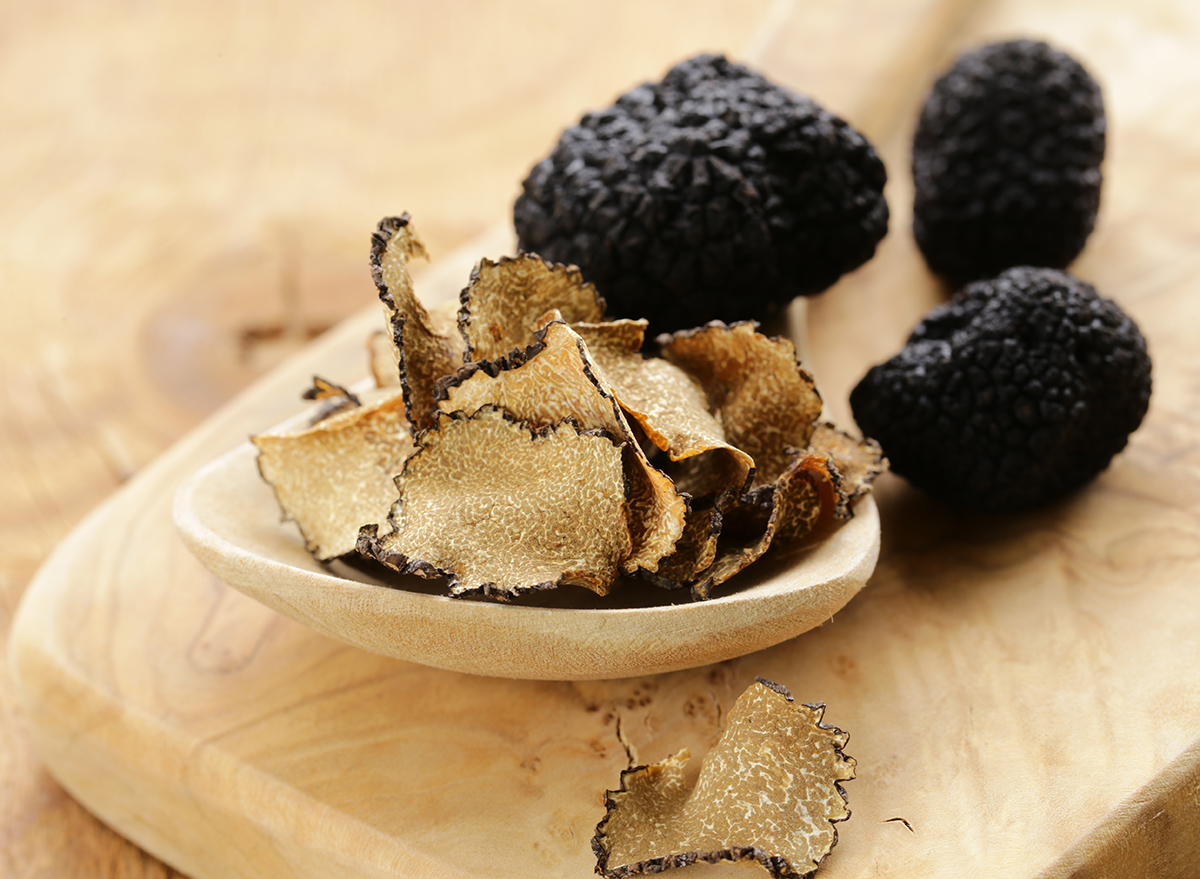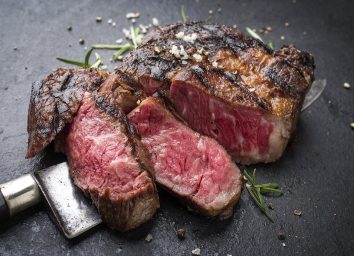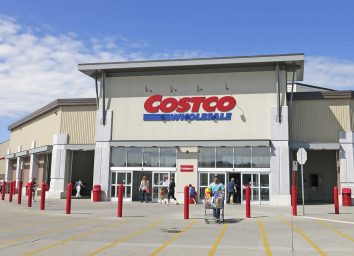Why Truffles Are One of the Most Expensive Foods on the Planet

If you've ever spotted a dish with the word "truffle" in it, chances are the next thing you noticed was the hefty price tag. Right up there with caviar, truffles are one of the most expensive foods on the planet (no, we're not talking about the ones of the chocolate variety). This begs the question: Why?
What is a truffle?
Although they're often described as mushrooms, it's actually not that simple. "Truffles are not the same as mushrooms, but they are a fungus, like mushrooms," says Ron Hsu, Executive Chef at Lazy Betty in Atlanta.
Stephen Parker, the Executive Chef at Lot15 in New York City, says that a truffle is a type of fungus that can generally be considered a type of mushroom "under a definition that considers any spore-bearing fruiting body of a fungi a mushroom." By that definition, a truffle can be considered a mushroom because it's a fruiting body of a fungus.
How do truffles grow?
Truffles can only grow under very specific conditions, which is a key factor in the high price. Parker explains that they typically grow deep underground, around the roots of certain trees such as the oak, hazel, poplar, beech, and pine trees. "These trees and truffles have a symbiotic relationship as the tree roots provide sugars to help the truffles grow. And in return, the truffles give the trees minerals and nutrients from the soil," he says.
Because truffles need the perfect conditions to grow, you can't correctly mimic their growth in a greenhouse or in a laboratory, Parker says. Rather, wild fungus requires a combination of the right soil, climate, and trees to grow—and "even with the most perfect conditions, there is no forcing Mother Nature to work her magic," Parker says.
Truffles are only naturally occurring. So, as Hsu says, "we're at the mercy of Mother Nature's bounty."
How are truffles harvested?
Truffles are seasonal and extremely rare. Due to the specific conditions required for growth, Parker says cultivation is an incredibly difficult job. Under ideal conditions, it still takes upwards of seven years for truffles to properly grow.
Furthermore, truffles are difficult to find because they're buried up to a foot deep in the ground. For this reason, they need to be hunted by animals who are specifically trained to find truffles. Parker says that pigs were traditionally used because a truffle's scent is said to smell like the testosterone of a boar, which attracts the pig. However, there was a bit of a hiccup with that method.
"Not only do pigs love to eat truffles, but they would often get very excited in their search, damaging the natural environment, and thus reducing the production rate," Parker says. As a result, using pigs to hunt truffles has been outlawed in Italy since the mid-1980s, and today, truffle-sniffing dogs perform the task.
"One strategy is not to disclose where one finds truffles so you're not fighting against other truffle hunters," Hsu says. It's truly every man (and truffle-hunting dog) for himself when it comes to obtaining this delicacy.
When should you buy truffles?
Because truffles are something of an investment buy for the kitchen, you want to make sure you purchase them when they are at their highest quality. "Don't buy [truffles] prior to the end of the second week of September or after the second week of January," Parker says. He explains that the color and shape of the truffle aren't important in determining its quality. Instead, you should rely on the smell.
"The smells should be a cross between forest earth, cognac, hazelnuts, garlic, and cream; rich with notes of mushroom, hay, garlic, and dampness," he says. When performing your smell test, it's important to sniff the truffle on all sides to make sure the aroma is uniform and there aren't any patches where the smell appears to alter, especially if it seems acidic.
"The true smell of a fresh truffle is strong and should hit you hard," Parker says. "If you can't detect much of a smell, then there must be something wrong with the truffle."
While you might not be using these tips on a truffle-hunting mission of your own, they should give a little more insight into just how involved the harvesting process is. The next time you drizzle truffle oil onto your potatoes, you'll know a little more about truffles and why they're so expensive.








